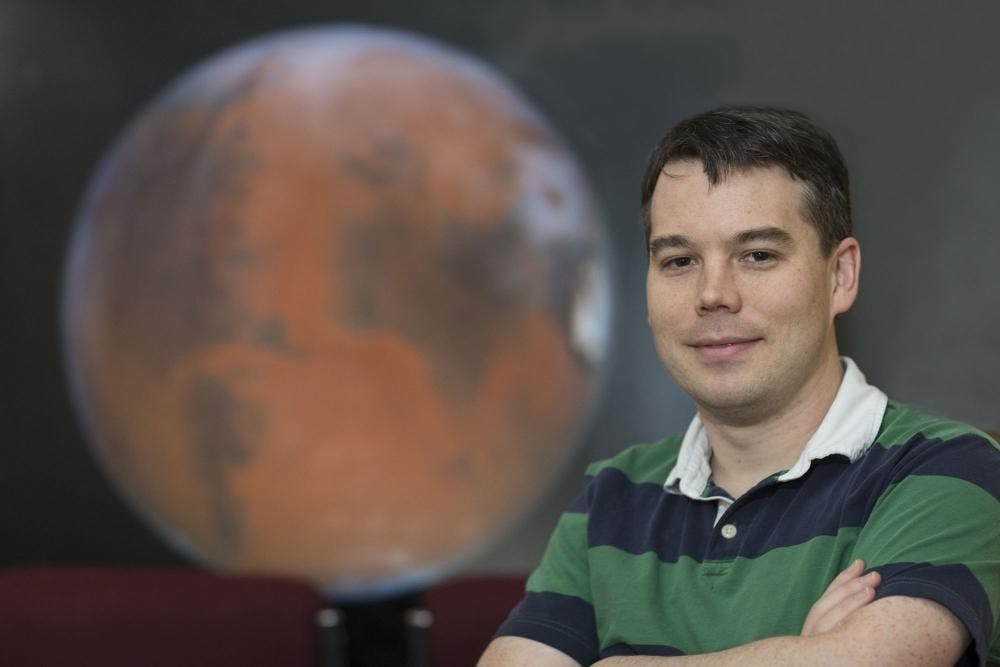Asst. Astronomy Prof. Shane Davis has been announced as a 2015 Sloan Research Fellow. Davis is a theoretical astrophysicist and an expert on using large computer simulations to model the growth and development of black holes and star formations.
Since 1955, the Sloan Research Fellowship has honored early-career scientists and scholars for their achievements in a diverse range of fields. Fellows receive $50,000 to further their research, and this year the foundation selected 126 researchers from 57 institutions in the U.S. and Canada.
In the past 60 years, 43 Sloan Research Fellows have received a Nobel Prize in their respective fields, 16 have won the Fields Medal in mathematics, 65 have received the National Medal of Science and 14 have earned the John Bates Clark Medal in economics.
Davis is the second of the University astronomy department to win the Sloan Fellowship.
“It’s a nice recognition...[but] I believe it shows that just one more person is doing good research in an already very accomplished department,” Davis said.
Davis’ recent research on black holes has received great repute in the scientific community.
“He has done particularly important work on how black holes produce the light which allows us to detect them, and he already is one of the world’s most productive theoretical astrophysicists,” Astronomy Department Chair Craig Sarazin said. “I believe that Shane is now the leading expert in the world on calculating the spectra of accretion disks around black holes.”
Davis conducts this research by developing numerical simulation methods using massive parallel supercomputers. The objective is to model the interaction between the force of radiation of light, pushing on gas and causing star formation, which is essential to understanding the dynamics of the system.
Davis, in collaboration with a Harvard University researcher, used the National Science Foundation’s supercomputer to run simulations of accretions or matter falling into black holes. Without the supercomputer, these diagnostic calculations cannot be made.
Davis will use the funds from the Sloan Fellowship to further his research in star formation and black holes.







